I am excited to welcome to the show, our guest, Gary Boomershine. He founded RealEstateInvestor.com in 2005 out of the need to scale and grow his own real estate investing and home buying business. With a family legacy in the real estate niche and a long, successful career and enterprise in emerging technology markets, Gary saw the vision for RealEstateInvestor.com. He noticed the glaring opportunity to leverage people, processes and technology, to gain a leg up in the changing and competitive marketplace. As he worked to develop and use the initial product and service, he saw his real estate business flourish by allowing him to work smarter, not harder and focusing on the one thing that makes money talking to sellers and making offers. That’s when RealEstateInvestor.com began offering its flagship product, REIvault to the savvy investor market. Gary, how are you? Welcome to the show.
It’s such a pleasure being here. I know we’ve been talking about pulling this together for quite some time. I am so pleased to be here and also share some good content and information to your loyal group of followers.
I’ve watched some of your stuff. It’s amazing. My ladies are going to absolutely love this. Let’s start by telling us your story. How did you get started?
I’ve been around a long time in this niche. I grew up in a family of real estate entrepreneurs. My parents had a real estate brokerage. I was a licensed agent two weeks after turning eighteen. I was a licensed agent in 1987. I paid for college that way, holding open houses and door knocking and cold calling and even coming home on the rental properties with a paintbrush. I went down the technology path. I live in California. I’m right here in Silicon Valley about 45 minutes from San Francisco. I’ve got a Computer Engineering degree. I went down that path. It was great except it was 90-hour weeks and traveling all over the world, but never seeing the sunshine because I was inside of buildings. I learned a lot, but it was in 2004 after doing four technology startups on the sales side and running a sales team that my wife and I said, “Let’s get back to the brick and mortar.” We started real estate investing and that was in 2004.
It’s been an incredible journey. What I love about real estate is, first off, it’s cyclical. You want to be constantly changing and evolving because what works now is different than what worked a few years ago. I liked that change. Number two is our product is everywhere. I was speaking at an event in San Diego. I said, “Look outside, look at all these buildings and look at San Diego, this is our product.” It’s not like we have to manufacture something like garments or widgets. It’s right there in front of us.
Not only is it right there in front of us, everybody needs it. It’s a product that will never go away.
I started that. I don’t even know the number. I know it’s 600 or 700 properties. Even now, I’m working in four markets. I do a lot of private lending as well. It’s probably what I’m most passionate about, being the bank. I started a company called RealEstateInvestor.com. We’re the largest marketer for real estate investors and agents. I shared this with you. Our number is 36 million pieces of direct mail is what we have sent out for a small group of real estate investors. There are about 250 investors and agents that we service as a company where we manage all their direct mail better than they could do it on their own. We provide the systems to do all the follow-up and then the phone team to call, screen, qualify and schedule appointments. We’ve been doing that for many years. It’s a lot of fun.
What have you learned? What has the market taught you?
Especially for the people that are fairly new, this has been an incredible market, what it’s done for me. I was at an event in Tampa and one of the gentlemen got sick. He’d been sick. He ended up getting MRSA. He’s a well-known guy. His name is Rob Swanson. He was sharing how he got MRSA at a dental office. He was sick for four years. He couldn’t get out of bed. He said, “What saved my life and saved my family financially was his rental properties. It was cashflow. One of the things I’ve learned in real estate is there are three buckets in real estate and a lot of people forget this. There’s cash now, there’s cashflow, and then there’s cash later.
A lot of people get stuck focusing on one or another. A lot of people in this market are just doing wholesaling. That’s a cash now business. It’s transactional, which means it’s a job. If you don’t work, you don’t make money. It’s important to be thinking of doing all three. Even now when I’m purchasing property, I’m always looking, “Is this a property I’m going to do cash now or am I going to turn this into a rental property or possibly down the road into appreciation?” That’s a big one. A lot of people get a little bit misguided, focusing and getting stuck on that cash now. That would be number one.
Number two, this market is changing. We’re in a euphoric stage of real estate. Real estate for over 100 years, by the way, Moneeka, you know this as well. Real estate has been consistently a seven-year cycle. The last cycle was seven as well almost to the day. Some people even call it a Shmita. It’s from 2001 to 2008. Now we’re at the ten-year mark and we’re seeing a lot of things that were similar like direct mail. Everybody’s focusing on going after off-market deals. It’s become more competitive. A lot of the late-night TV commercial guys are back. I work out at the gym and I see both Dean Graziosi and Than Merrill up on the screen from FortuneBuilders. It’s a sign of the times. This is a time to be watchful. The market is going to turn. Anybody that doesn’t think so, they are a bit happier.
We’ve already started to see it especially here in the Bay Area. I’m in San Jose. Where exactly are you?
I’m in Danville. I’m right up the street from you.
I don’t often get to talk to locals. Anyways, even here, days on market has gone way up, prices are stable, but we’re not getting multiple offers. They’re not getting full bids. We’ve already seen it starting to turn.
There’s a lot of money to be made. Those people who are doing heavy rehabs could get stuck. Warren Buffett, I was at his shareholder meeting and I remember he has Berkshire Hathaway. He is one of the wealthiest guys, if not the wealthiest guy in the world. He said, “A true real estate investor is somebody that has money and they invest and hold for the long haul.” That’s not necessarily people who are wholesaling, fixing and flipping, rehabbing, which is also awesome, but it’s not investing. It’s more of being a business operator. I always say, “All businesses need a CEO. If the CEO is doing $10 an hour work, you’re going to have a $10 bank account.”
It’s focusing on the moneymaking opportunities. Warren Buffett said that his keys to success are to buy low, sell high, don’t lose investor money, and follow the local, state, and federal laws.” There’s so much wisdom. I’ve been coaching thousands of people for years around RealEstateInvestor.com. I see a lot of people that are taking profits. I’ve got some people in Denver, as an example, a very saturated market. They’re rehabbing. They’re buying. They’re using investor money for breakeven. They’re not even making any profit. They’re trying to keep their teams afloat and busy. That’s a recipe for disaster.

Top Marketer Lessons: There are three buckets in real estate. There’s cash now, cashflow, and then cash later.
A lot of people are buying creatively. They may be getting some owner financing. They may be wholesaling because this is still a very hot market, the wholesale, with very little risk. When they’re buying and holding, they’re either doing it more linear markets, or they’re doing it where the numbers make sense. This is a time to do it right. Those people that are doing it right will survive and thrive in this changing market.
You said you’re in four markets. Are those four different cashflow strategies or four different real estate markets? Could you clarify that?
I like working in a couple of counties outside of the metroplex. I’m not even in the Bay Area. Santa Cruz South is where I’m at, the Central Valley of California. What I’ve found is those are markets that are producing well for me. I’m also in Salt Lake City. Primarily, we’re wholesaling. I would say that 80% of what we’re doing there is wholesaling because the profits are great. We’re finding properties that are value-add properties. We’ve got cash buyers that are picking them up because the market is hot. I’m getting some owner financing where some of the sellers are carrying back paper at low-interest rates. We’re holding those. I’m also lending right in your town as an example. I love lending, first position money. Those are my three strategies.
The cash now is my wholesaling business. In California, we’ll be making an average of like $22,000 to $25,000 per deal. On the cashflow is lending. Deals where we’re owner financing and renting those back. Some will turn into Airbnb and Vrbos. Cash later are things where we’re owner finance, where we’re getting super-low interest and we’re paying down notes over the long haul. I picked up a property in Pasatiempo. I had owner financing and that property is an $800,000 deal, payout in over 22 years. That would have probably been a $20,000 to $30,000 flip, but the way we ended up doing it is a long cashflow play. I can share a little bit more in your private group when we go a little bit deeper.
Especially because it’s in my hometown, my readers may not be super interested but I am. There are a lot of people that are reading that are in these saturated markets or these expensive markets. I talk about it all the time but there aren’t many guests that can have that same conversation with me. This will be delightful for the ladies that are reading. They’re like, “What do you do in my market type of thing?”
I’m talking a little bit about the downturn. I don’t want that to be doom and gloom. It’s what we should all be talking about. I’m involved in a lot of masterminds, which is another thing I recommend for a lot of us to be involved, interacting with people, small groups in a mastermind format. A lot of us are having this conversation of what to be doing now with the foresight of the market of either being a correction or a downturn and what that looks like. I’m super positive about it. It’s a great thing. A lot of us are looking forward to a slowdown in the market.
I don’t think any cycle in the market is doom and gloom. We have opportunities everywhere, no matter what’s going on, but you have to be aware of what those opportunities are, how to take advantage of them and where you are in the cycle. There’s no bad piece of the cycle. It’s what are you going to do with it? I’m with you on that. You have this concept of all leads suck. Talk to me a little bit about that in your business.
Let me back up. This is so important. Most of the deal flow where most of the investors are targeting are people that are looking for consistent 2, 3, 4, 5 deals a month. It’s coming from off-market. We’re going direct to the seller. We’re bypassing the agent. The best formulas for it that we’re seeing is direct mail. It is an outbound text messaging. Being able to buy a list, this is something that we do for our members, skip tracing that list, and then doing outbound text messaging that’s under compliance because you want to stay compliant with the FCC. Cold calling, RBM, and then another one that’s called PCSOI, which is building your long-term sphere of influence and relationship but it’s targeting off-market.
I see a lot of people that come to me and they’re looking for a motivated seller but the reality is that motivated seller doesn’t exist. What we’re looking for is a reasonable seller. I’m delivering a sales course specifically around this. It’s a certification course that I’m building out right now, but I have a price curve and the motivation curve. What happens is a lot of people are talking to sellers and they’re not ready to sell yet. It takes follow up. What we’re finding is that there’s a live conversation that has to be had with the seller.
A lot of people will see leads and they’ll be like, “This seller isn’t motivated. They’ve never even talked to him.” The motivation level happens over a period of time. On average, it’s between 5 and 12 interactions with the seller. There’s a national statistic, less than 10% of any real estate investor or agent will ever follow up more than twice. The reason I say all leads suck is it’s more of a mindset because a lot the people that I see, they’re what I would consider 3 feet from gold. They’re close, but they’re looking at a lead. It’s like, “The seller isn’t motivated.” It’s like, “No, they’re not ready.” Usually, a seller that’s not ready, they want a higher price.
The more motivated they are, the more time that’s gone by, the lower the price goes down. I encourage people especially if they’re going after say direct mail and they’re sending out direct mail. The key is consistent follow up, text message and phone calls. One of the most profitable roles for hiring or having a third-party like us is somebody that can be calling those people and texting them all day long. I see a lot of people that don’t do that.
This is important what you said. There are a lot of ladies that are reading that have tried different strategies and that didn’t work. What I want people to do is find whatever that strategy is that makes their heart sing and get good at it. You’ve got these three pieces. There’s the now, the cashflow and the later, and you’re going to add those in as you get better. I started with the later because I didn’t need the now or the cashflow. Now I’m moving back because now I need the cashflow. It goes in whatever order works for your life and what your needs are. Get good at it and then move to the next thing.
The problem is that so much of the time we pick something because it sounds good, it makes our heart sing when we think about it. We try it and it didn’t work. There are a lot of reasons that it didn’t work. First of all, you’re not awesome at it yet. There’s a learning curve in everything. The biggest issue is the follow-up. I will admit, this is a big issue with me too, because if I get a couple of noes, I feel bad about calling again. I don’t know if this is true for men as much as it is for women, but I know as women, we don’t want to be rejected. We want to be liked. It’s part of our makeup. It’s hard to keep making those phone calls. This is valuable and important, Gary, because if you can hire somebody to take care of that piece, that doesn’t make your heart sing, you can have a successful business in the way that you want it.
There is a sale that happens. Even in a marriage, I always say there is a sale and there’s a customer. In any deal, there’s a sale and then there’s a customer. I say marriage because if you didn’t know that there was a sale, it probably means that you were the one that got sold. My wife and I celebrated our 25th anniversary. It was great.
You and I are like twins. We did a renewal of our vows for 25th in Maui.

Top Marketer Lessons: This is a time to be watchful. The market is going to turn.
Here’s from a sales perspective. True sales do not start until there’s been rejection or a no. The sale doesn’t happen. This is every Fortune 1000 company that’s in America or anywhere else. This is standard training. It’s not something I’ve created, but the sale starts when there’s a no or there’s a rejection. The biggest reason that people, especially men even more than women, are not on the phone is a fear of rejection. It is something to overcome. There is live human interaction. What’s interesting is that people buy or sell to people that they like, trust, and respect. Rule number one of sales, first, they sell to their friends. Second, they sell to their friends. Third, they sell to their friends.
Getting on the phone, interacting, and being okay because it’s an emotional decision. Selling a house is a big deal. You could go directly and work with an agent. An agent has done all this work. They’re the ones that are doing all the sales work, talking, and doing the listing. If we’re going direct to the seller, there is a relationship that has to be built. What I teach people that’s important is to take the pressure off. It’s a conversation. They’re probably not motivated. That’s why I say all leads suck until you get on the phone and talk to the seller and then realize it’s not all about making the offer on the first phone call. It might take 4 to 7 phone conversations.
I did this on stage. I called it the state of the union on a real estate business. That is, everybody’s focused on finding these motivated leads or the perfect words to convert sellers. I said you want to establish value more than anything is what problem do they have and how can you solve it? That comes at a discount. You’re able to make a lot of money. I’ll give you a perfect example. One of the worst calls I ever had was in Morgan Hill, down the street from you. It was a very angry seller. Some of the angriest sellers by the way are some of the most profitable. He was a fireman and called and left a nasty message. I called him back and he goes, “Who is this?” I said, “I’m probably the last person on the planet you want to hear from. I’m the guy that sent you the postcard.”
He yelled and screamed. I said, “I’m sorry. You don’t know me, but how would you recommended that I reach out and get in contact with you? I have something that you may be interested in.” Anyway, I made $240,000 buying two properties from him. It turned out that his wife was in jail for embezzlement. They had $1 million lien against two properties. He wasn’t angry at me. He was angry with the situation. You have to get on the phone and talk with these people. I’ll give you a couple of other things. I don’t want to go into too much crazy detail. We’ll leave it for the other group.
Assume this is the national average 45 leads will average into one deal. A lot of people don’t know that number. It’s super important because if you knew that you have 45 leads, and if you averaged to follow up with each of them, 5 to 12 times, and you’re going to close a deal that could be a $20,000 or $100,000 deal. If you look at the amount of money for dialing the phone, it’s a lot of money. Every time that you dial the phone, whether the seller answers or not. Somebody needs to do that work.
At the end of the day, if we’re going after off-market deals, you can do all the courses. You can have all the systems. You can be in all the mastermind groups and real estate clubs. If you’re not on the phone, having a live interaction with the seller, there’s no profit to be made. That’s more than anything else. For us as a company, people come to us because number one, we get them in front of those leads. We’re generating those leads typically off a direct mail or cold calling. We’re following up, calling, and having a 6 to 8-minute conversation to find out of those leads, which are the ones that are ready and more motivated now?
Instead of you having to do hundreds and hundreds of calls, you’re already talking to maybe 15 or 20 people a month that are the truly qualified ones. This is classic sales. If you get that right, you’ve got a thriving business. I know one of our members, he did $2.3 million in flips. Half of it came off of direct mail and a little less than half came off a cold calling. He’s in Indianapolis. A young kid, he’s 27 or 28. He started a few years ago in the business. There’s a lot of money to be made if you get the marketing and the phone work dialed in.
Talk to me specifically about REIvault. Who would be the best member for you? Give me an idea of the costs. What does that look like for an investor?
Who’s a good fit? People who have been doing this business with some success. We’re probably not best for people that are brand new. Somebody that’s closed a handful of deals at least and they’re looking to scale it up. The reason I say that is because when somebody comes to us, they’re looking for more consistency versus getting their first deal or two across the goal line. If you need help with your first deal or two, that’s probably a coach or having somebody to coach you. We’re not a coaching platform. We’re more of a results-oriented company. It’s an agency model. You’re plugging into our staff. I have a team of over 110 people. I have a group of people that will work to identify what we think is going to be the best marketing for you.
We’ll execute the marketing. We’re going to take our phone team and then work those leads. It’s about the cost of hiring one full-time overseas person. If you were hiring a $12 to $14 an hour person full-time, that’s what you’d be paying to us, but that would include marketing and doing the phone work. On top of that, there’s a marketing budget. If you’re in California, as an example, you’re going to be spending a lot more money on marketing than if you were in the central part of the country. What we do is we help our members. Somebody will tell us they want to buy three houses a month, or they want to buy ten houses a month and we’ll say, “You’re in Wisconsin,” or we got Erik Hatch, a well-known real estate agent and they are also buying houses.
We got in front of 127 appointments and he closed 30 houses and 27 listings is what he did. We came up with a budget and said, “We think your cost per deal, how much money you’re going to have to spend to get enough leads to close one deal.” We predicted that at about $1,500 a deal. It was super conservative because he was way below that on costs. We’ll come up with the budget and then we’ll execute and do all the marketing for that. Call the leads and schedule appointments. An average member would be spending about $2,500 a month to tap into our team. A lot of people say it’s like having the equivalent team of 40 people for the cost of one resource. They’ll pay a flat monthly membership fee plus whatever their marketing spend is that can go up or down. I have some people with us that are spending $60,000 to $80,000 a month in marketing and still working to scale it up from there.
There’s a huge range of people that you can work with, someone that’s got a $60,000 spend. What would you say a lower spend might be like a beginner, someone who’s starting with you?
It’s market-dependent. If you’re in California, I don’t think you should be spending less than $5,000 or $6,000 a month in marketing. That’s probably to get you one deal. California is extremely competitive. We’re very predictive. We’ve done over 38 million pieces of direct mail. We’ve tracked every response rate. I know what we mail to get how many calls. If you’re in the center part of the country, it could be closer to maybe $1,500 to $1,700 a deal. If you’re in Florida, you’re probably closer to $2,400 to $2,800 a deal. What will happen is somebody will sign up with us. It’s a fast process. It’s about seven days that we’re onboarding them.
We build a marketing plan that we both agree to. We start and about ten days total from the time that they sign up, we’re generating leads for them. What we do is we usually tell somebody, “Why don’t we start with maybe a $3,000 or $4,000 budget? It could be less, could be more, and then let’s get on a phone in a month after we start this, we’ll do an account review and look at how things are going. We then make any changes and either scale up or what have you. A typical member will be somebody like we’ve got Javier in North Carolina. He started a couple of years ago. He’s doing like a $30,000 a month budget. He’s got a seven-figure business and started with no deals in 2018.
What do you mean he started with no deals? He hadn’t done anything yet.
He had done a couple of deals, but there was no consistency. Also, he didn’t have a large marketing budget. He tells his story that in 2017, he had to borrow money from his son because he ran out of cash. He didn’t have a lot of cashflow and operating capital to run his business. We got him started. He closed a couple of deals. He started scaling from there. He’s in five markets. He’s got a large team now with a seven-figure flipping business.

Top Marketer Lessons: A true real estate investor is somebody that has money, and invest and hold for the long haul.
We’ve got a lot that we’re going to talk about in the EXTRA portion of the show. We’re going to do some deep dives on some things like what do the numbers look like? What are some big secrets on how to get the deals, specifically what to do in these larger markets? Your favorite mailing lists and strategy. We are going to talk about that stuff in the EXTRA and some other stuff that’s come up. I know that you give a huge amount of information. We’ll talk about all of that in the EXTRA portion of the show. For now, could you tell me how they can get in touch with you?
The best way is to go to REIvault.com. There is a See If I’m Qualified button. It will walk you through. You can schedule an appointment with one of us or probably Julia Jordan. She lives in Dallas. She and I have been working together for years. She’s bought and sold herself a couple of hundred houses. You’d have a live phone conversation with her at REIvault.com. I do have a giveaway that I’ll give to everybody. We finished this. It’s our direct mail secrets of everything I talked about, but probably even more granular. Here are the things to implement to make direct mail work. You can go to RealEstateInvestor.com/directmailsecrets. That’s a free guide that we put out. I’m pleased with how it’s working. I’ve had a lot of people that have provided great feedback on that.
Thank you for that. You can definitely plug into Gary’s gift and also see if this might be something that would work for you, which it sounds like it could for a lot of my readers.
I’m always posting videos. I have a podcast. I’m always interviewing interesting people on building culture, building teams, hiring people and all that stuff. That’s RealEstateInvestor.com/huddle-podcasts. I’m on Instagram. I’m always posting my morning minute or my inspirational tip for entrepreneurs. You’ll see me there as well. You can go to https://tinyurl.com/timeROIbliss to evaluate what your time is worth and when it makes sense to outsource. This is a very valuable tool.
Are you ready for our three rapid-fire questions? Gary, tell us one strategy on getting started in real estate investing.
The best strategy especially if you don’t have a lot of money is wholesaling. Wholesaling is a very simple model for finding properties that have value. You’re buying them under market with cash. It’s a single offer. You’re finding a cash buyer that wants to buy that property at a higher price. You’re signing what’s called an assignment contract and people make millions of dollars doing that. It’s an easy model, little risk. That’s a great strategy. It’s something I’m doing. I know that you do a little of it. If you have money, a great model I like is what’s called the turnkey model. Some of the linear markets, I do this as well. I take some of my money and I provide it with a couple of turnkey providers where they are finding the properties. They are producing nice results, but they handle all of the renovation and property management.
Memphis Invest is an example of that business model. We’re there in Memphis. I love the Omaha market. I love the Kansas market. I love Memphis. Those are the linear markets. When I say linear, typically they don’t have huge spikes in up and down. Omaha, Nebraska had less than a 6% drop during the recession in 2008. I like those because they’re nice cashflowing markets. As I see the downturn happening, I also see massive inflation down the road. They’re printing more money, the Federal Reserve. We can’t even make our debt. 2022, the United States cannot make its debt payments. The only thing that got 8 or 9 triggers, but one is inflation. If we’re in an inflationary market, holding assets in real estate is an incredible thing. All of us and the readers, we should be holding real estate for the long haul.
What would you say is one daily practice that you do that contributes to your personal success?
I was a huge workaholic. It’s very easy to get stuck in the weeds in this business. One thing I do is what I call my 5-10-3 Rule because as a CEO, as an entrepreneur running a business, which is what I’m doing and many of us are. We have to be CEOs in our business. I wake up at 5:00 in the morning. I push out my start day to 10:00. That gives me five hours of personal time. I journal. I read scripture. I work out. That gives me five hours and I plan my one thing. What’s the one thing that I’m going to do to move the marker? 5:00, 10:00, and then the 3:00 are the three hours that I’m going to work in the business as a CEO.

Top Marketer Lessons: True sales do not start until there’s been rejection or a no.
I do that. When I only have three hours, it means I’ve got to use my time wisely. It’s raising money, reaching out to other investors that I’ve raised money from on deals. It might be closing a bigger deal. It might be reaching out to a contact or working with a staff person for me. That’s changed my life. There’s a book called Traction. That’s popular in our business. I follow Traction. It’s an operating model for a lot of us. A lot of people get stuck. Even though we might have professional degrees, it’s easy to be doing the $10 an hour work and focus on the wrong money-making activities. I’m focused on my time. I’d recommend other people do that. It’s easy to get trapped and then chasing shiny objects. There’s not a lot of money to be made reading emails, watching social media and courses and things like that.
What is one strategy on being successful in real estate investing?
Persistence and tenacity. Everybody should be a referral for you. That’s probably the biggest one for me is everybody that I talk to are the people that I’m raising money from. I always say when you’re raising money, which we should always be raising money, every one of us, you want to raise money when you don’t need it and you never have to ask for the money. I tell people what I do and people immediately come back saying, “Could you tell me a little bit more?” I get a lot of people that will come in and participate with me on deals. All of us should be raising money. Businesses do that.
I’m looking forward to the EXTRA portion of this show, but thank you for what you’ve shared so far, Gary. This has been amazing.
It’s been great.
Ladies, if you are subscribed to EXTRA, please stay tuned. We’ve got more coming for you. If you’re not subscribed but would like to be, and you want to get all this additional GC information, go to RealEstateInvestingForWomenEXTRA.com and you can get subscribed there. If you’re leaving us now, thank you so much for joining Gary and me for this portion of the show. I look forward to seeing you next time. Until then, remember goals without action are just dreams. Get out there, take action, and create the life that your heart deeply desires. I’ll see you next time.
Important Links

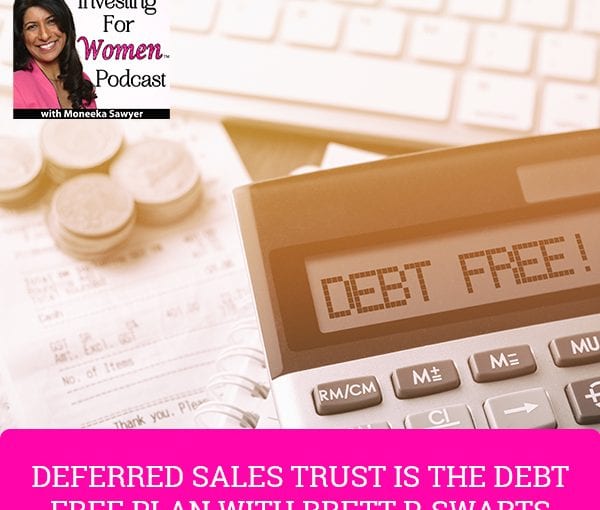
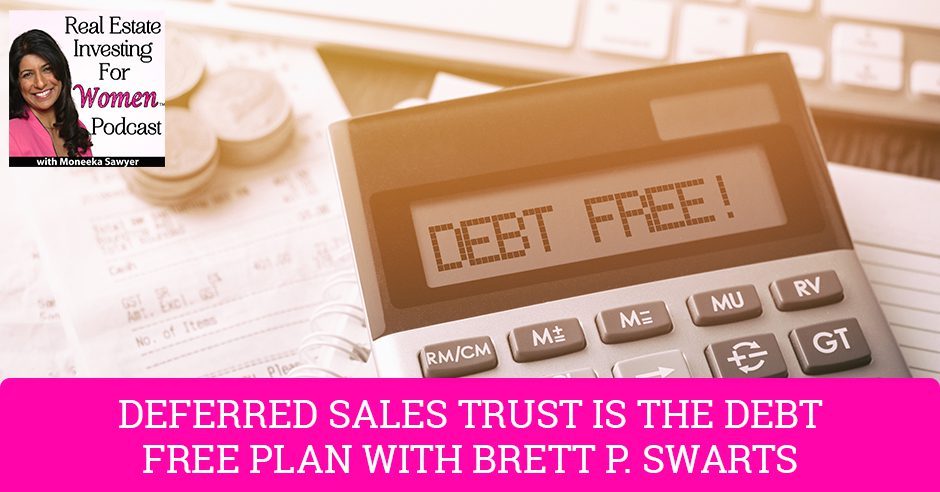
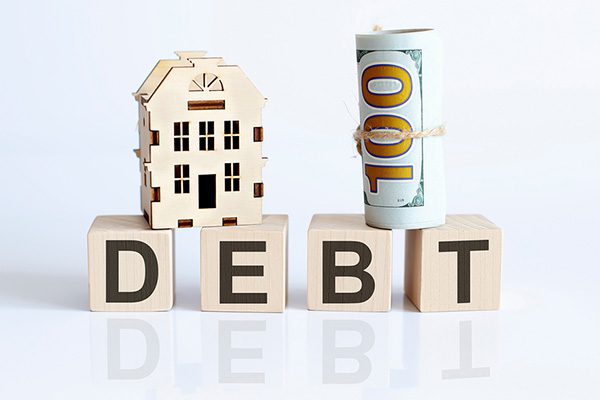


 Brett is a capital gains tax deferral expert, Investment Real Estate Expert, Multifamily Broker, and the Founder of Capital Gains Tax Solutions – a company helping people to defer capital gains tax on the sale of their highly appreciated assets, eliminate the need for a 1031 exchange, and free up their time so they can create & preserve more wealth.
Brett is a capital gains tax deferral expert, Investment Real Estate Expert, Multifamily Broker, and the Founder of Capital Gains Tax Solutions – a company helping people to defer capital gains tax on the sale of their highly appreciated assets, eliminate the need for a 1031 exchange, and free up their time so they can create & preserve more wealth.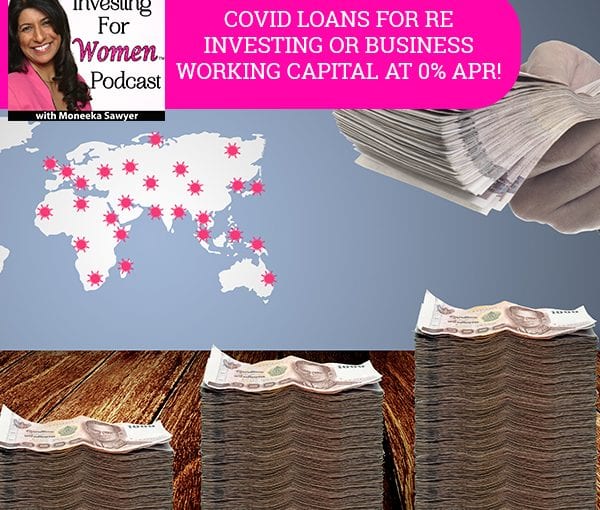
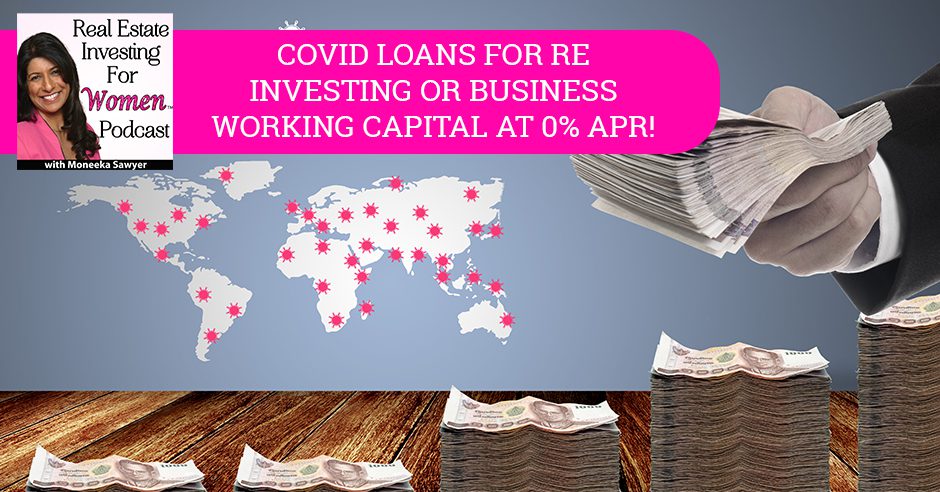

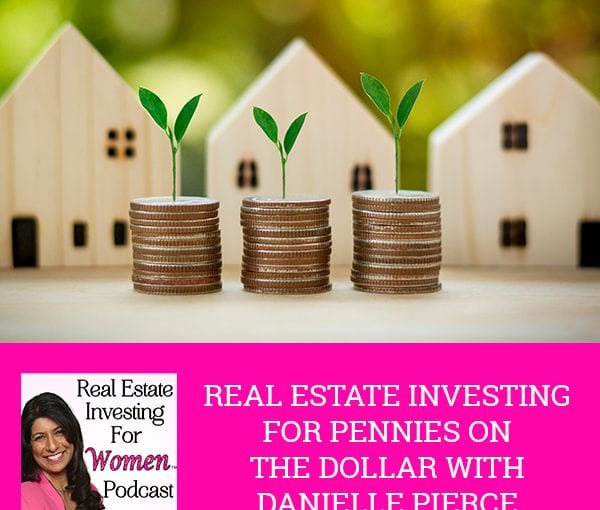
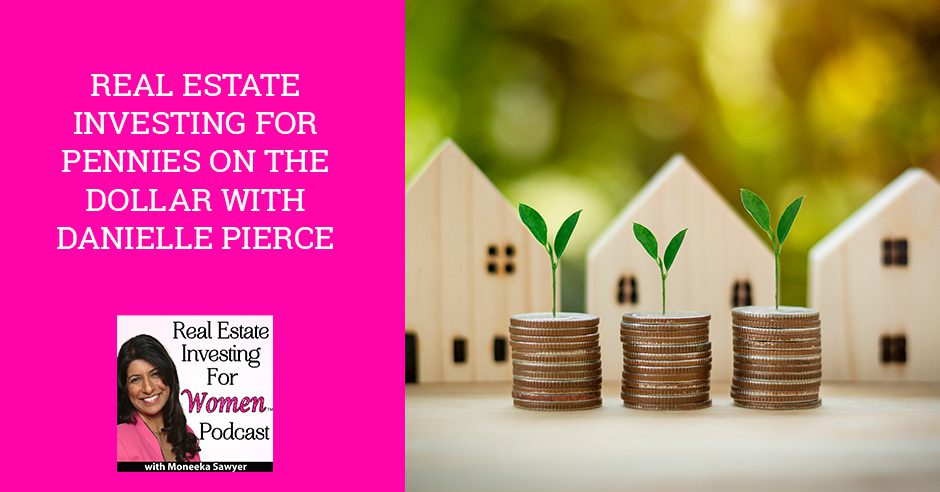



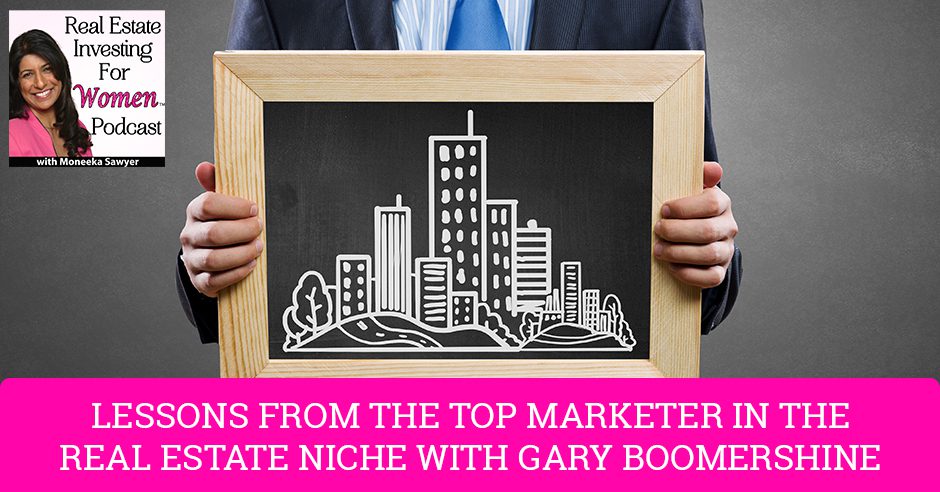




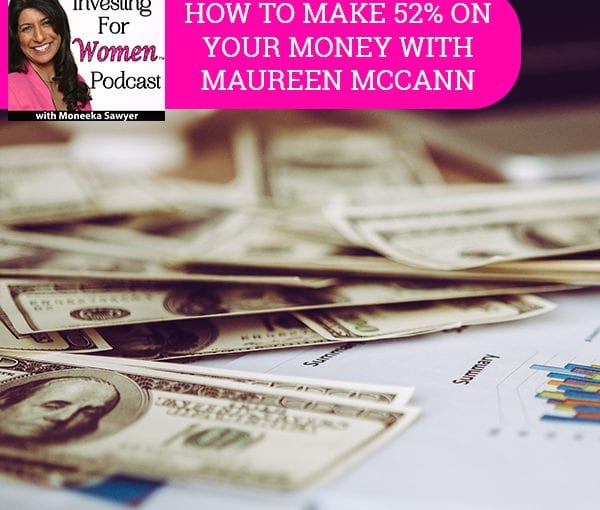



 Maureen, Co-Founder and Principal Owner of Spartan Invest, operates as the VP of Sales and Marketing for this boutique type real estate investment company. Spartan Invest is a small real estate investment company that specializes in providing investors turnkey real estate for monthly passive residual income. Maureen brings with her 10 years of sales and marketing experience in the turnkey marketplace. Having served as an Investment Property coach for years, Maureen is skilled at helping clients build turnkey cash flow portfolios for her clients.
Maureen, Co-Founder and Principal Owner of Spartan Invest, operates as the VP of Sales and Marketing for this boutique type real estate investment company. Spartan Invest is a small real estate investment company that specializes in providing investors turnkey real estate for monthly passive residual income. Maureen brings with her 10 years of sales and marketing experience in the turnkey marketplace. Having served as an Investment Property coach for years, Maureen is skilled at helping clients build turnkey cash flow portfolios for her clients.